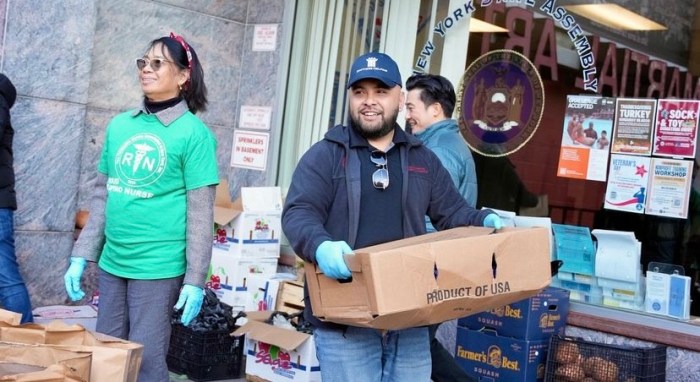By Kenneth Kowald
Like most American kids, I learned our national anthem at an early age, in school. Assemblies in JHS 73 in Maspeth and at Newtown High School started off with it, and so did baseball games and other events.
We all tried to sing along and most found it hard. Not just the words — which too many singers today seem not able to remember — but the music, which can really strain the voice, unless you are a pop star and can get away with not doing it right to begin with.
“The Star-Spangled Banner” has been our national anthem since 1931, thanks to a congressional resolution. The words were written during the War of 1812, but the music goes back to the mid-18th century, when it was adopted by an English drinking club and called “To Anacreon in Heaven,” to honor an ancient Greek poet of drinking songs and hymns.
It was popular in our new nation, with different lyrics on occasion and many times as bawdy as the original.
Perhaps at the end of a long bout of drinking the voices might be able to strain to the high notes, but for this baritone — formerly a boy soprano — and millions of others, it has been a trial. I have often wondered why we could not have a better anthem, like “America,” for example. Better music, I think, and more appropriate words.
But twice within the last decade — the second time last month — I have had second thoughts: Maybe this is the right national anthem, even when badly sung and the words are mangled.
The first was Sept. 15, 2001. The New York City Opera had planned to open its fall season earlier that week, but then the murders on Sept. 11 shut everything down.
Then-Mayor Rudolph Giuliani, who distinguished himself as a leader in those days, worked to get the city back to work. An opera buff, he asked the City Opera to open with its Saturday matinee of Wagner’s “The Flying Dutchman.” I had a ticket for that performance.
I got out of the subway at Fifth Avenue and 53rd Street and started walking to Lincoln Center. If I recall correctly, it was a lovely day, but the quietness was disturbing. Not a ghost town, but a ghostly one.
It was quiet in the lobby of the State Theater.
When the house lights went up, every member of the cast and every person working that day for the City Opera came out on the stage and the orchestra began the national anthem. The thousands in the house stood and sang along with everyone on stage. It was a moment not to be forgotten.
After the opera of love and redemption was over, the ovation for these artists was magnificent. I think there were not many dry eyes.
Somehow, in those opening moments and in the end, music had overcome the powers of hate and destruction.
A few weeks ago, after the murders at the Boston Marathon, a hockey game in Boston opened with the national anthem. Suddenly, the singer was joined by everyone in that arena, all singing along. There were probably many tears there, too.
So, after straining to hit those notes all these years, this writer may be reconciled to our national anthem. It certainly has the power, for whatever reason, to bind Americans together when it counts.
“Music has charms to soothe a savage breast.” I learned that line by William Congreve in elementary school, long ago.
When the going gets tough, that seems to apply even to “To Anacreon in Heaven.”



































